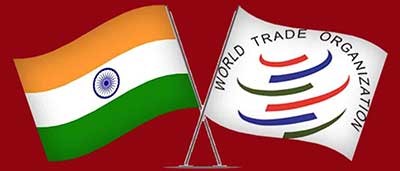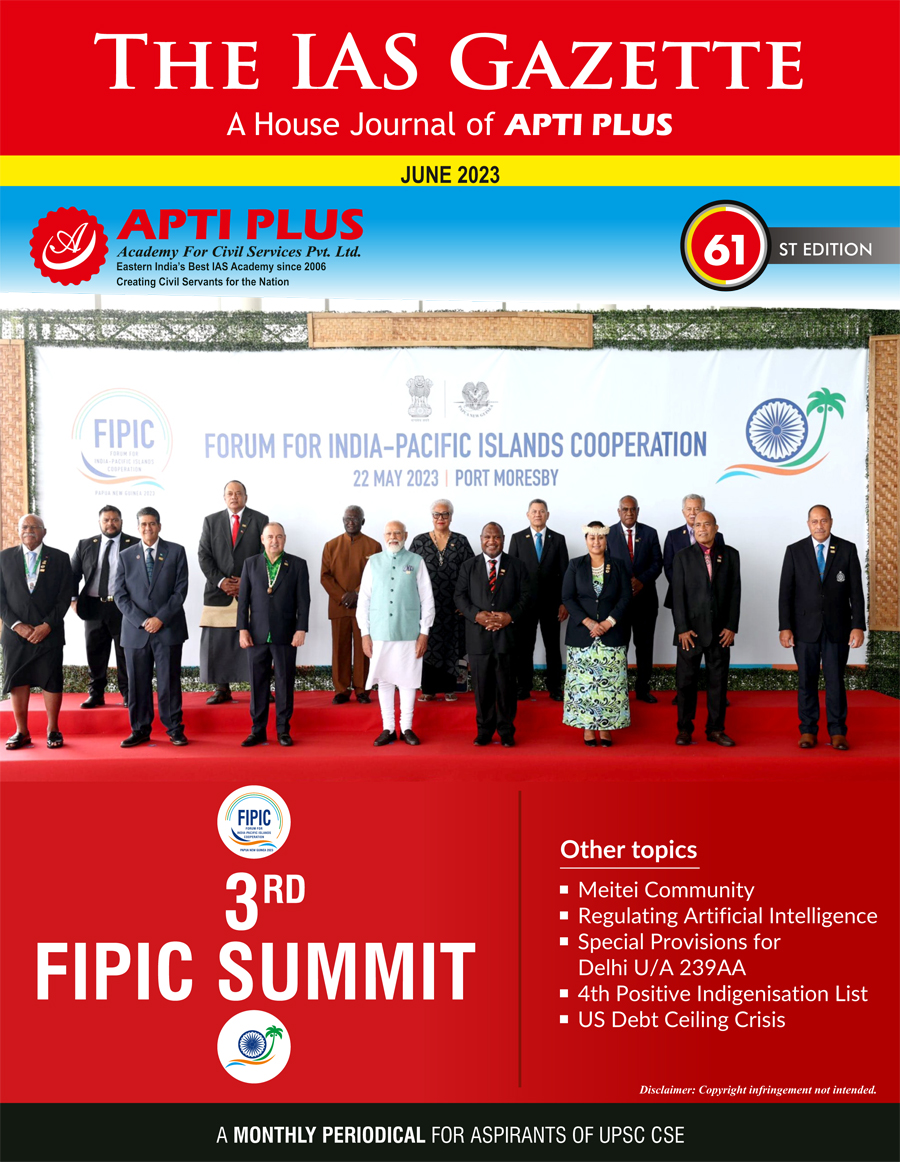Description
 Disclaimer: Copyright infringement not intended.
Disclaimer: Copyright infringement not intended.
Introduction
- The World Trade Organization (WTO) has ruled in favour of the EU in a major case challenging India's tariff on key information and communication technology (ICT) products.
Background
- India has since 2014 gradually introduced customs duties of up to 20% on products such as mobile phones, mobile phone components and accessories, line telephone handsets, base stations, static converters or electric wires and cables.
- The EU considered that these duties were in direct breach of WTO rules since India is obliged under its WTO commitments to apply a zero-duty rate to such products.
- The EU initiated this WTO dispute settlement case in 2019. The panel issued its final report to all WTO Members on 17 April 2023.
Ruling
- In its panel ruling, the WTO upheld all EU claims against India and found that India's tariffs of up to 20% on certain ICT products, such as mobile phones, were not in line with its WTO commitments, and thus are illegal.
-min.jpg)
What the WTO Said
- The WTO panels concluded that India's duties have nullified or impaired benefits accruing to the complainant countries under that agreement. "...we recommend that India bring its measures into conformity with its obligations under Articles II: 1(a) and (b) of the General Agreement on Tariffs and Trade (GATT),
- The articles provide for exemption from ordinary customs duties, other duties and charges on select imports, which refer to electronics and information technology items in this case.
- India should apply a zero duty rate on information and communication technology products like mobile phones, according to its WTO commitments. Instead, it has tariffs of up to 20 per cent. That is illegal, a WTO panel has ruled. Respect for the rules-based trading system is vital for a good trade relationship.
India’s stance
- In its defence, India had maintained that its binding tariff commitments are in accordance to the Information Technology Agreement and that these commitments did not change upon their incorporation into India's WTO Schedule.
- India also raised several arguments on the nature of the conditions attached to certain tariff treatment as well as the tariff classification of certain products.
Repercussions
- The EU has also approached India to resolve the matter through a multi-party interim appeal arbitration arrangement (MPIA). However, India is against MPIA as a mechanism and is in favour of the restoration of the WTO appellate body.
Note: MPIA is an alternative system for resolving WTO disputes that are appealed by a member nation in the absence of a functioning WTO appellate body.
Implications
- The EU is India's third largest trading partner, accounting for 10.8% of total Indian trade in 2021, according to the European Commission.
- The panel findings would have an impact in the ongoing Free Trade Agreement negotiations with other countries, particularly the EU.
IMPORTANT ARTICLES ON WTO:
https://www.iasgyan.in/daily-current-affairs/wto
https://www.iasgyan.in/daily-current-affairs/wto-agrcultural-subsidies
https://www.iasgyan.in/daily-current-affairs/rules-of-origin
|
RULES-BASED TRADE
The World Trade Organization (WTO) deals with the global rules of trade between nations. Its main function is to ensure that trade flows as smoothly, predictably and freely as possible.
At the heart of the organization are the WTO agreements, negotiated and signed by the bulk of the world’s trading nations. These documents provide the legal ground-rules for international commerce. They are essentially contracts, binding governments to keep their trade policies within agreed limits. Trade within the framework of the WTO agreements is described as “rules-based”, meaning it is a system based on rules.
A rules-based trading system ensures that individuals, businesses and governments know what the trade rules are around the world. It gives them the confidence to do business under stable predictable conditions.
What are the WTO rules about?
The WTO agreements cover goods, services and intellectual property.
- They spell out the principles of liberalization, and the permitted exceptions.
- They include individual countries’ commitments to lower customs tariffs and other trade barriers, and to open services markets.
- They set procedures for settling disputes.
- They prescribe special treatment for developing countries.
- They require governments to make their trade policies transparent by notifying the WTO about laws in force and measures adopted.
- They require the WTO Secretariat to regularly issue reports on countries’ trade policies.
|
Criticisms of WTO
- The World Trade Organisation (WTO) is committed to improving free trade amongst its member countries. However, its role has been controversial – creating polarised views.
- These are some of the criticisms of the WTO
- Free Trade benefits developed countries more than developing countries. It is argued, developing countries need some trade protection to be able to develop new industries; this is important to be able to diversify the economy. It is known as the infant industry argument. Many developed economies used a degree of tariff protection in their development phase. Economist Ha Joon Chang argues WTO trade rules are like ‘pulling away the ladder they used themselves to climb up’.
- Most favoured nation principle. This is a core tenant of WTO rules – countries should trade without discrimination. It means a local firm is not allowed to favour local contractors. It is argued this gives an unfair advantage to multinational companies and can have costs for local firms and the right of developing economies to favour their own emerging industries.
- Failure to reduce tariffs on agriculture. Free trade is not equally sought across different industries. Both the US and EU retain high tariffs on agriculture, this hurts farmers in developing economies who face tariff protection
- Diversification. Arguably developing countries that specialise in primary products (e.g. agricultural products) need to diversify into other sectors. To diversify they may need some tariff protection, at least in the short term. Many of the existing industrialised nations used tariff protection when they were developing. Therefore, the WTO has been criticised for being unfair and ignoring the needs of developing countries.
- Environment. Free trade has often ignored environmental considerations. e.g. Free trade has enabled imports to be made from countries with the least environmental protection. Many criticise the WTO’s philosophy that the most important economic objective is the maximisation of GDP. In an era of global warming and potential environmental disaster, increasing GDP may be the least important. Arguably the WTO should do more to promote environmental considerations.
- Free trade ignores cultural and social factors. Arguably a reasonable argument for restricting free trade is that it enables countries to maintain cultural diversity. Some criticise the WTO for enabling the domination of multinational companies which reduce cultural diversity and tend to swamp local industries and firms.
- The WTO is criticised for being undemocratic. It is argued that its structure enables the richer countries to win what they desire; arguably they benefit the most.
- Slow progress. Trade rounds have been notoriously slow and difficult to reach an agreement.
- WTO becoming overshadowed by TIPP agreements which fall outside the purvey of WTO rules.
- In the light of increasing operational pressure and the lack of effectiveness of the WTO in bringing consensus, countries have preferred to negotiate bilateral, plurilateral and regional trade agreements instead.
- Such trade agreements are opportunities for select countries to create new rules and to address the changing nature of the global trading system. But they are often discriminatory in nature, giving preferential treatment to signatory countries, creating alliances and blocs with their own rules and monitoring systems.

Reform Proposals
- WTO reform entails updating all of the WTO's core functions — transparency and monitoring, negotiation, and dispute settlement.
- The broad objectives suggested a general focus on improving the “efficiency and effectiveness” of the WTO’s ability to monitor member states, “safeguarding and strengthening the dispute settlement system,” and updating trade rules and regulations to ensure the WTO’s relevance for modern trade issues.
- Reform proposals aspire to level the playing field between member states by creating stronger rules.
- Regarding the dispute settlement system, countries recommend expanding the Appellate Body panel from seven to nine judges, redefining membership of the Appellate Body from part-time to full-time, and allotting more resources to the Appellate Body Secretariat.
Closing Remarks
- India has rightly expressed sharp concern over “a one-sided narrative" being advanced by major developed countries, especially the US, that disregards “issues of importance and concern to developing countries."
- Moreover, the one-sided narrative “erodes the core principles of consensus-based decision making, non-discrimination and Special and Differential Treatment (S&DT).
- India states emphatically that “the Marrakesh Agreement establishing the WTO recognizes that international trade is not an end in itself, but a means of contributing to certain objectives including ensuring that developing countries and LDCs secure a share in international trade commensurate with the needs of their economic development."
- Therefore, discussions on WTO reform, India cautioned, “should be premised on the principles of inclusivity and equity, and not serve to widen existing asymmetries in the covered agreements".
- India calls for “disciplining laws and regulations of WTO Members which mandate unilateral action on trade issues that are inconsistent with WTO rules".
- There is an urgent need for “strengthening the multilateral character of the WTO, especially through the preservation of the practice of decision-making by consensus".
|
PRACTICE QUESTION
Q. There is an urgent need for “strengthening the multilateral character of the WTO, especially through the preservation of the practice of decision-making by consensus. Comment.
|

https://www.thehindu.com/business/wto-panel-rules-against-india-in-it-tariffs-dispute-with-eu-others/article66748592.ece#:~:text=Photo%20Credit%3A%20Reuters-,A%20World%20Trade%20Organization%20(WTO)%20panel%20said%20on%20Monday%20that,the%20WTO%20panel's%20report%20said.





 Disclaimer: Copyright infringement not intended.
Disclaimer: Copyright infringement not intended.




